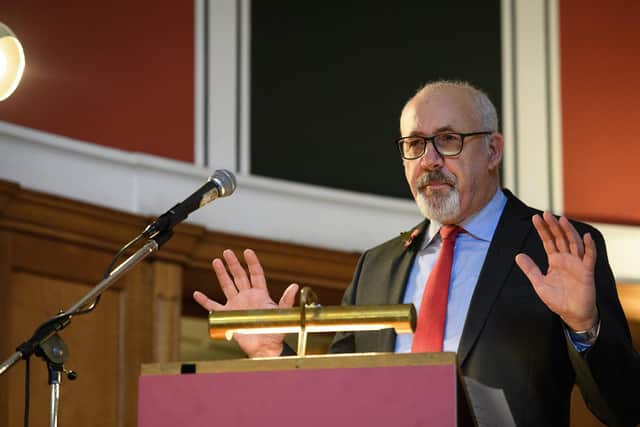'No one is safe until everyone is safe' - MP calls for focus on why Covid hotspots still appear in West Yorkshire
Hemsworth MP Jon Trickett today called a debate where he highlighted the disparities over where coronavirus has hit the hardest.
He said his part of West Yorkshire was not ready for the pandemic due to cuts in the number of hospital beds available in recent years and that there was a clear North/South divide not only in health in general, but in how Covid-19 had hit the country.
Advertisement
Hide AdAdvertisement
Hide AdAnd he said that although coronavirus rates had fallen dramatically, “no one is safe anywhere unless everybody is safe”.


Mr Trickett said that when looking at a graph, infection rates had “taken off” in his area within days when “a decision was taken - by I presume a scientist but with support of the Government - to reduce the vaccine supply into Yorkshire”.
“And what we have is clear hotspots, on the one hand, where the infection is still raging, and other areas where it's almost been eliminated,” he said.
There was a dispute over whether vaccine supplies had been diverted from Yorkshire in January when the Government both denied supplies had been sent to other areas where there was worse progress in meeting targets, but also said doses were being targeted to areas which most needed them.
Advertisement
Hide AdAdvertisement
Hide AdAnd Mr Trickett today asked for confirmation that was a “short term reduction” as he said Wakefield was now vaccinating more people than the national average.
But he said class, deprivation, existing health conditions, and cuts were to blame for some areas still having higher infection rates.
Mr Trickett said the coronavirus rate Wakefield was still three times higher than the UK average, at 72 cases per 100,000 people compared to 29 per 100,000 across the country.
While in the Health Secretary’s constituency of West Suffolk, he said it was 8.4 per 100,000 people - nine times more than in Wakefield.
Advertisement
Hide AdAdvertisement
Hide Ad“That is a staggering difference,” he said, as he explained he had asked Wakefield Council leader Denise Jeffries whether public health teams could move “almost like a hit squad to do test and trace and maybe to also accelerate the vaccination programme” in worst-hit areas.
But he added that “Covid is definitely a disease which feeds off poverty” and “it leaves our communities less resilient to all kinds of things - including COVID - than it would otherwise be”.
Mr Trickett said as well as other issues, home working was a key driver behind higher rates in some areas.
“So, for example, in Yorkshire, just over a third of people are working from home, two thirds are still working at the place of work. That compares to nearly 60 per cent in London,” he said.
Advertisement
Hide AdAdvertisement
Hide AdAnd he said that meant people in Yorkshire were more at risk of catching coronavirus, especially if employers refused to pay them if they were to test positive.
“If you have an economy such as we have in my area, lots of people work in small manufacturing and warehousing and lots of people in care services, in retailing, and other forms of services - all of them really, we could say a key workers in one form or another, they've kept the country going - but they're working at work rather than at home, and therefore they're exposed to the possibility of workplace transmission,” he said.
Health Minister Jo Churchill said she agreed that “Covid-19 has highlighted health inequalities across the country”.
And she said: “I emphasise that as we rebuild from the pandemic, we are committed to tackling the long-term problems and levelling up. People should have the right to good healthcare, a good life and good life expectancy, wherever in the country they live.”
Advertisement
Hide AdAdvertisement
Hide AdShe said: “Vaccines were distributed fairly across the UK. It was a mammoth job. Somebody always has to be at the top and somebody not so near the top, but there is now much more balance.”
But she added: “My focus has been, and remains, tackling inequalities through the health and social care system and promoting health among disproportionately disadvantaged groups, because targeting everybody often only enlarges the gap.”